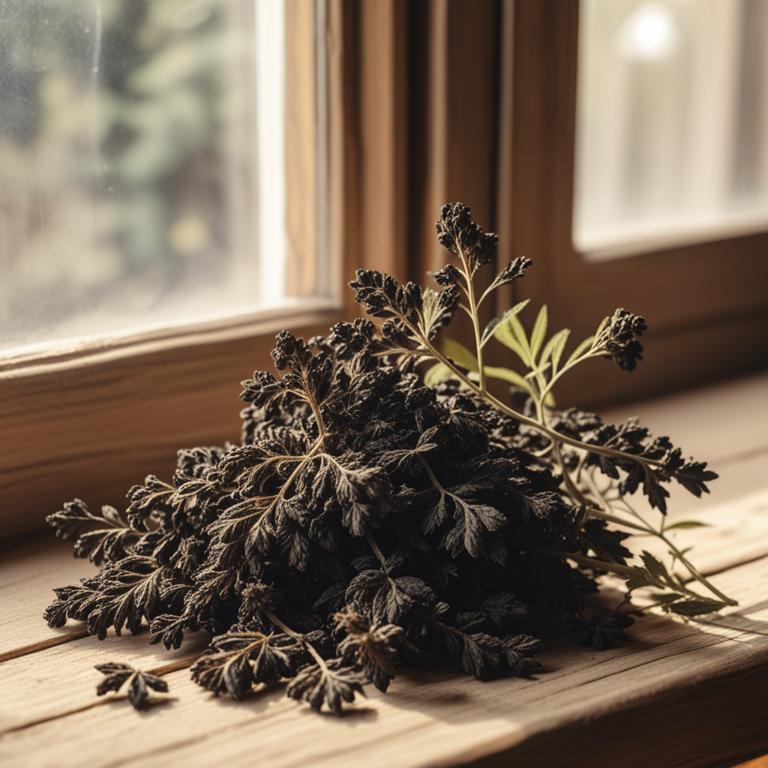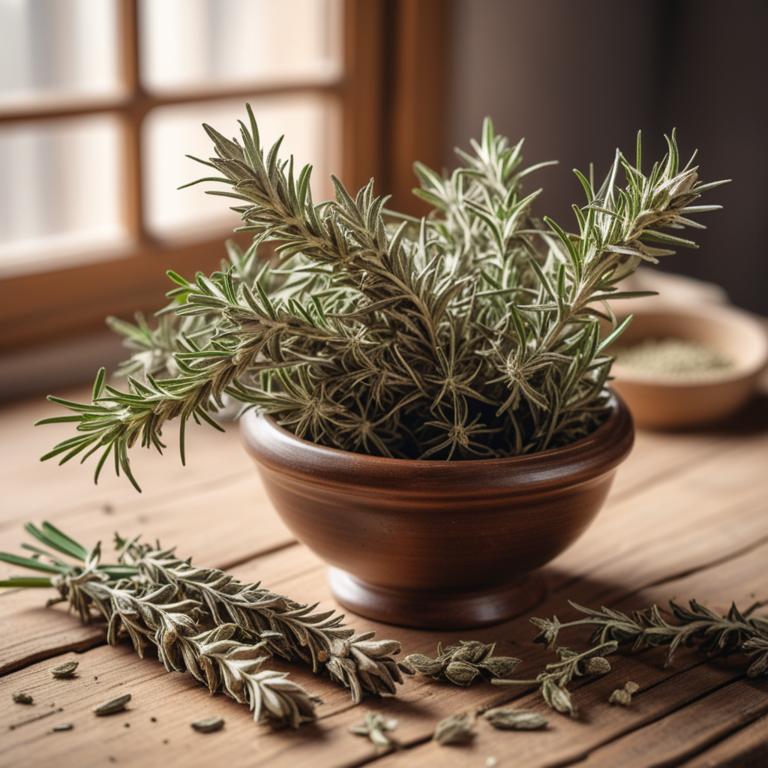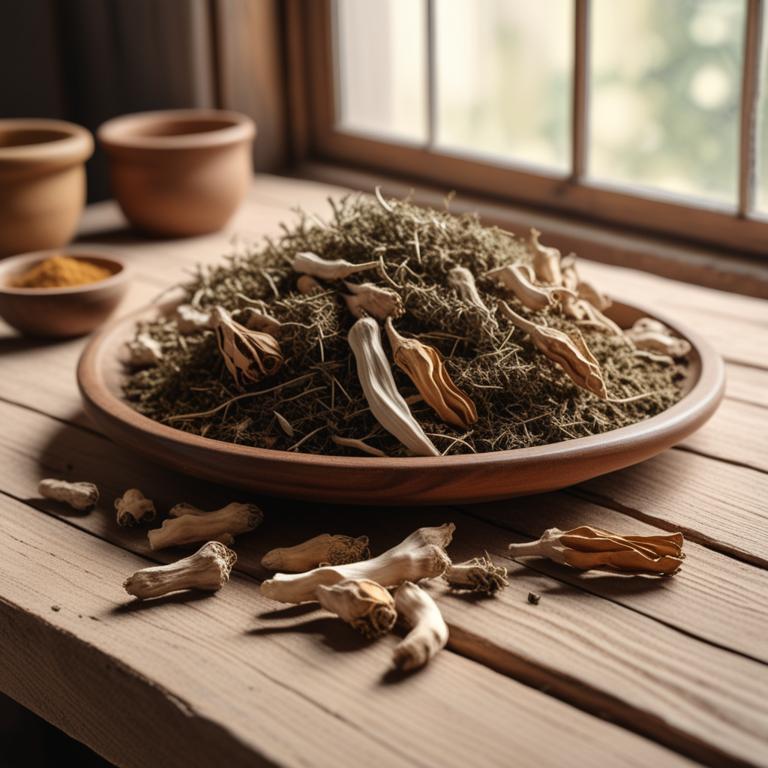Updated: Dec 1, 2024
Mucus in Throat - Understanding the Causes and Herbal Cures
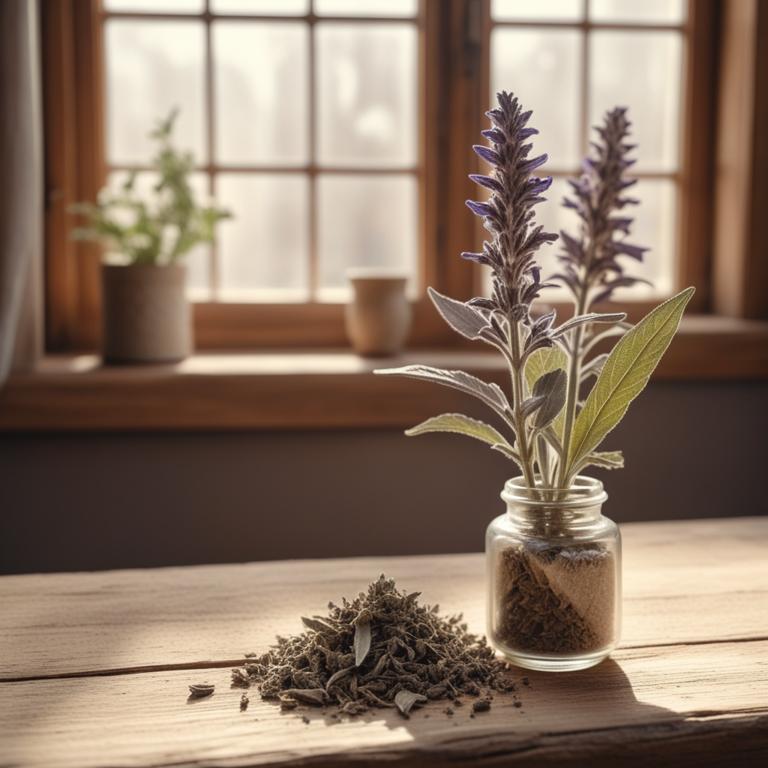
Mucus in the throat can be a real nuisance.
It's a thick, sticky liquid that can make it hard to swallow, talk, and even breathe. When you have mucus in your throat, it can be uncomfortable and affect your daily life. It can make you feel like you're constantly clearing your throat, and it can even lead to infections if it's not cleared properly. So, what causes mucus in the throat?. It's often a result of a cold or flu, but it can also be triggered by allergies, sinus infections, or even acid reflux. When your body is fighting off an infection, it produces mucus to trap the bad guys and keep them from spreading. But sometimes, this mucus can build up and become a problem.
Fortunately, there are some herbs that can help soothe and clear mucus from your throat. Thyme, for example, is a natural antibacterial agent that can help fight off infections and reduce mucus. Echinacea is another herb that can help boost your immune system and reduce inflammation. And slippery elm is a demulcent that can help soothe and protect the mucous membranes in your throat. These herbs can be used in a variety of ways, including teas, tinctures, and even lozenges. Drinking a warm thyme tea, for example, can help loosen and clear mucus from your throat. You can also add echinacea to your tea or take it as a supplement to help boost your immune system.
And slippery elm lozenges can provide long-lasting relief from a sore and congested throat.
Table of Contents
- What initiates the buildup of mucus in throat?
- What are the benefits of incorporating herbs into treatment for mucus in throat?
- What medicinal herbs are commonly used to address mucus in throat?
- What are the top herbal remedies for mucus in throat?
- What herbs should be avoided if you experience mucus in throat?
- FAQ
What initiates the buildup of mucus in throat?
The main causes of mucus in throat are allergies, cold, flu, and sinusitis.
When you have allergies, your body thinks that something harmless, like pollen or dust, is a threat. This triggers your immune system to produce extra mucus to trap the perceived threat, which can cause a thick, sticky texture in your throat. Cold and flu viruses can also cause mucus production in your throat.
These viruses infect the cells in your nose, throat, and lungs, causing inflammation and excess mucus production. This excess mucus can be clear, yellow, or greenish in color, depending on the severity of the infection. Sinusitis, an inflammation or infection of the sinuses, can also lead to mucus in the throat. When your sinuses become inflamed, they produce excess mucus, which can drip down the back of your throat, causing discomfort and a persistent cough.
Sinusitis can be caused by a cold or flu, or it can be a result of allergies or other underlying conditions.
What are the benefits of incorporating herbs into treatment for mucus in throat?
Using herbs to soothe a sore throat can be really helpful.
These natural remedies can help loosen and clear out mucus, making it easier to breathe and swallow. One of the main benefits of using herbs is that they can reduce inflammation and ease discomfort in the throat. This can make it feel better to talk and swallow, which can be a big relief if you're feeling congested.
Some herbs can also help to break down thick mucus, making it easier to cough up and clear out. This can be especially helpful if you're struggling with a persistent cough or sinus congestion. Additionally, many herbs have antimicrobial properties, which can help to fight off infections and promote healing in the throat.
By using herbs to manage mucus in the throat, you can find natural relief from congestion and discomfort.
What medicinal herbs are commonly used to address mucus in throat?

Herbs can be really helpful when you have a lot of mucus in your throat.
Let's talk about some of the best ones. Eucalyptus globulus, also known as eucalyptus, is great for loosening mucus so it can come out easily. It has a special compound called eucalyptol that helps break down the mucus. When you breathe in eucalyptus, it goes straight to your lungs and helps clear out the mucus. Licorice root, or Glycyrrhiza glabra, is another herb that's good for mucus in the throat. It has anti-inflammatory properties that help reduce swelling in the throat, making it easier to breathe. Licorice root also has a soothing effect on the throat, which can help calm down a sore or irritated throat. Thyme, or Thymus vulgaris, is a herb that's been used for centuries to fight off infections.
It contains compounds that help kill bacteria and other germs that can cause mucus buildup in the throat. When you use thyme, it helps to clear out the infection and reduce the amount of mucus in your throat. Echinacea purpurea, or coneflower, is a herb that helps boost your immune system. When your immune system is strong, it can fight off infections more easily, which can help reduce mucus buildup in the throat. Echinacea also has anti-inflammatory properties that can help reduce swelling in the throat. Ginger, or Zingiber officinale, is a herb that's known for its anti-inflammatory properties. It can help reduce swelling in the throat and make it easier to breathe. Ginger also has a soothing effect on the stomach, which can help alleviate nausea and vomiting that often come with a sore throat. These herbs can be used in different ways, such as drinking tea, taking supplements, or using them in a vaporizer.
They can help you feel better when you have a lot of mucus in your throat.
What are the top herbal remedies for mucus in throat?
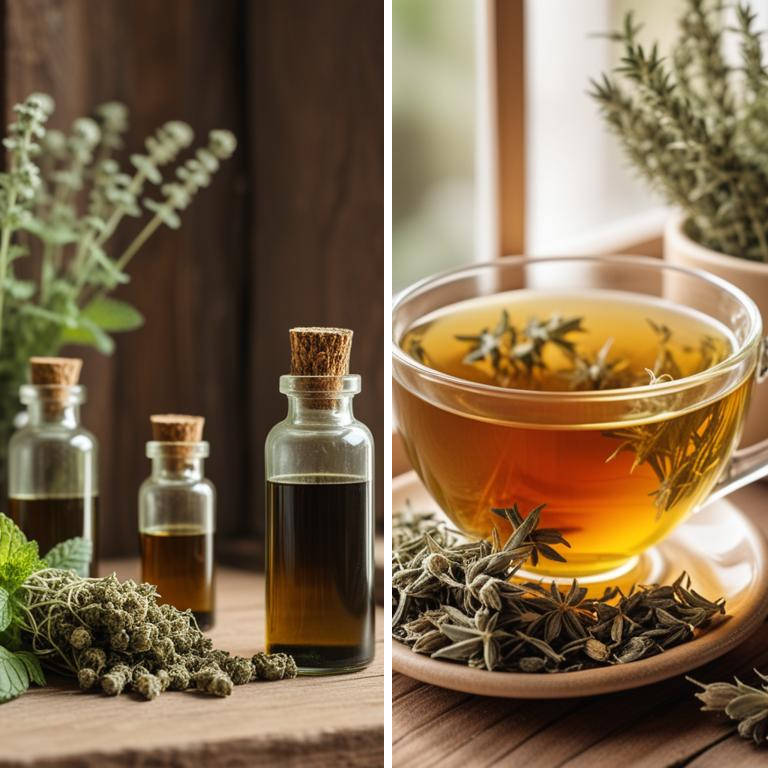
If you have a sore throat with mucus, herbal preparations can be a great help.
Let's take a look at some of these preparations and why they're good for you. First, there's Tincture Capsules. These are small capsules filled with a concentrated liquid herbal extract. They are good because the extract can quickly get into your bloodstream and start working to clear your mucus. For example, Echinacea tincture can boost your immune system to fight off the infection causing your mucus. Next, Throat Tea is another great option. This is a warm drink made from herbs that can help soothe your throat and loosen mucus. Herbs like slippery elm and licorice root are good for this because they have anti-inflammatory properties that can calm your throat and help your mucus come out more easily. Herbal Syrup is another preparation that can be very helpful.
This is a sweet syrup made from herbs that you can take by the spoonful. It's good because it can provide long-lasting relief from a sore throat and mucus. For example, a syrup made from marshmallow root and honey can provide a soothing and protective coating for your throat. Lozenges are also a popular choice for a sore throat with mucus. These small candies are sucked on to release a burst of herbal extract that can help clear your mucus. For example, eucalyptus lozenges can release a cool, minty feeling that can help loosen and clear your mucus. Lastly, Decoction is a liquid herbal preparation that's made by simmering herbs in water. It's good because it can be more potent than tea, and can be used to make a stronger syrup or lozenge. For example, a decoction made from ginger, garlic, and onion can help clear your mucus and fight off the infection causing your sore throat.
These are just a few examples of the many herbal preparations that can be used to help with a sore throat and mucus.
Additional Resources:
What herbs should be avoided if you experience mucus in throat?
If you have mucus in your throat, it's best to be cautious with certain herbs that can make things worse.
Rosmarinus officinalis, also known as rosemary, and Salvia officinalis, or sage, are both known to be drying agents. This means they can dry out your throat even more, making it harder to get rid of the mucus. They might also cause irritation, which can lead to more coughing and discomfort. Another herb to watch out for is Lavandula angustifolia, or English lavender. While it's often used for its calming effects, it can also cause a drying sensation in your throat, which might not be what you need when you're already dealing with mucus.
Hyptis suaveolens, also known as hyptis or false lavender, is another herb that could exacerbate the problem. It's known to have a drying effect, which might not be helpful if you're trying to get rid of mucus in your throat. Sambucus nigra, or black elderberry, is often used to help with respiratory issues, but it's not the best choice if you have mucus in your throat. The berries and flowers of the elderberry plant have antiviral properties, but they can also cause stomach upset and nausea, especially if you're taking other medications or have underlying health conditions. It's always a good idea to talk to a healthcare professional or a qualified herbalist before using any new herbs, especially if you're dealing with a health issue like mucus in your throat.
They can help you find safe and effective solutions that won't make things worse.
FAQ
Are there any specific herbs that can prevent mucus in throat?
Ginger and slippery elm are known to help reduce mucus in the throat.
Ginger has natural anti-inflammatory properties that can soothe an itchy throat, while slippery elm forms a protective barrier to shield the throat from irritation.
Consuming these herbs may help alleviate mucus and discomfort.
Is it safe to use herbal remedies for mucus in throat during pregnancy?
If you're pregnant and dealing with mucus in your throat, you might consider using herbal remedies like slippery elm or licorice root tea. However, it's crucial to know that some herbs can stimulate the uterus and cause contractions, so it's best to choose remedies that are safe during pregnancy.
Are there any herbs that can reduce the frequency of mucus in throat?
Some herbs, like thyme and eucalyptus, are known to help reduce mucus in the throat.
Thyme contains compounds that fight bacteria and reduce inflammation, while eucalyptus has decongestant properties that help loosen and clear out mucus.
Drinking tea made from these herbs may help alleviate throat congestion.
Related Articles
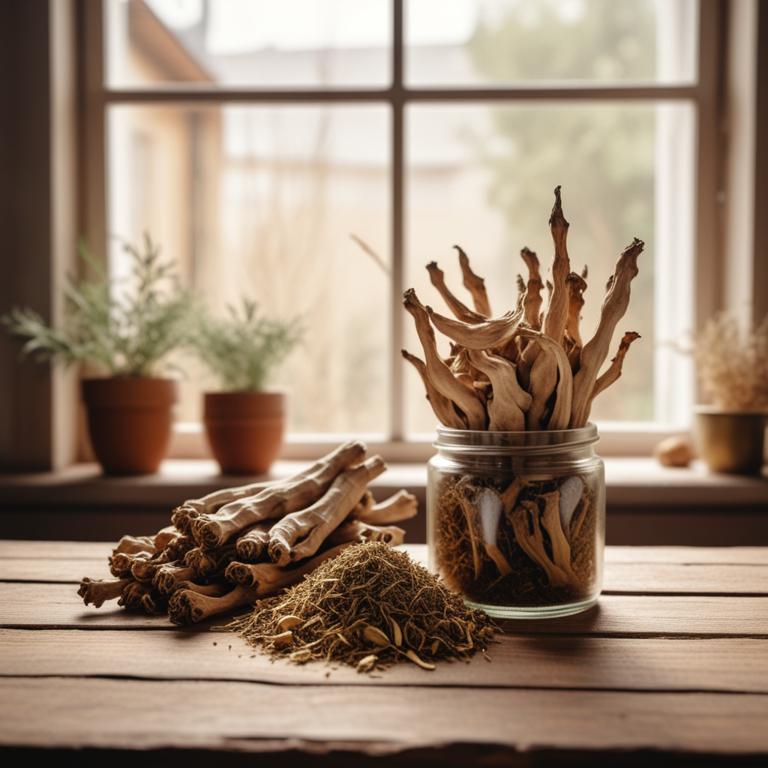
Understanding Chronic Bronchitis: Causes, Medicinal Herbs, and Herbal Remedies
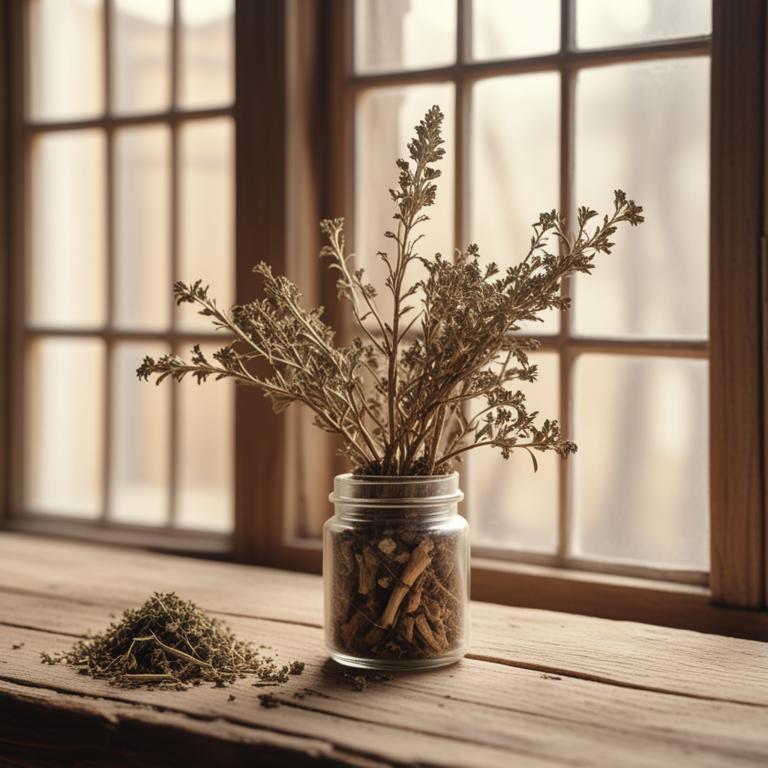
Understanding Coughing Fits: Causes, Medicinal Herbs, and Herbal Preparations for Relief
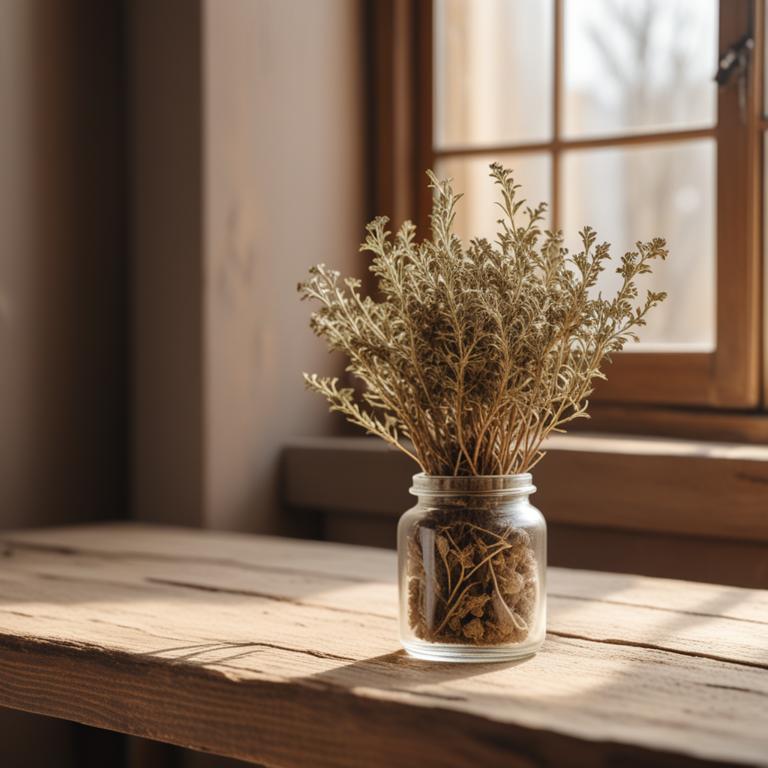
Throat Redness Causes, Remedies with Medicinal Herbs and Herbal Preparations
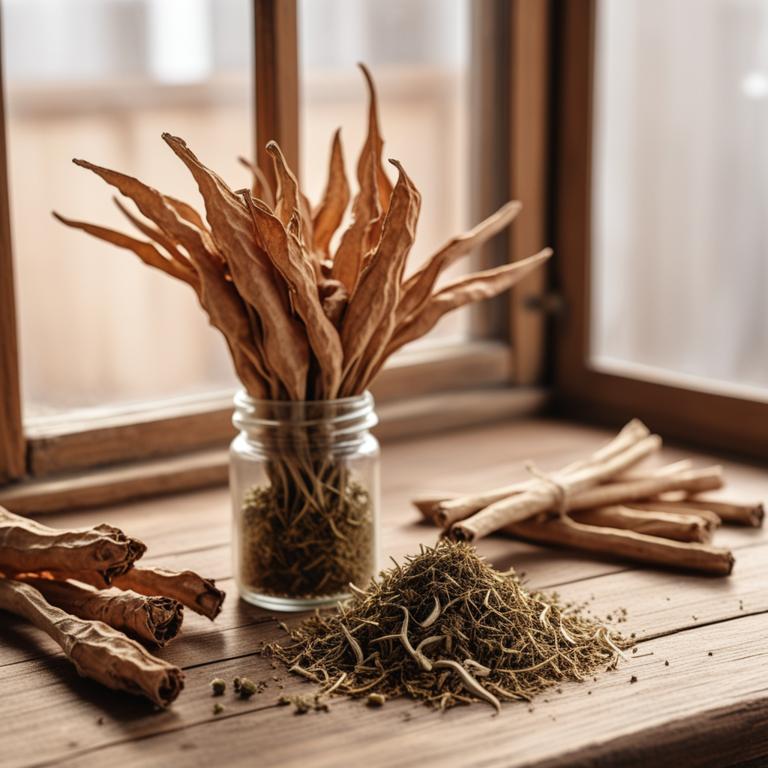
Cough Causes and Natural Cures: The Power of Herbal Preparations
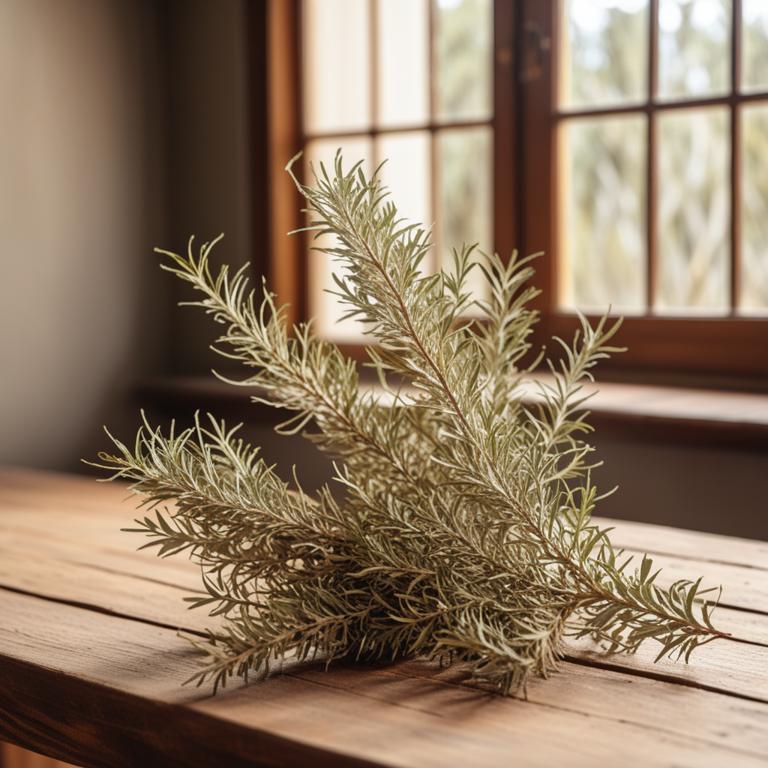
Understanding and Managing Fungal Infection with Medicinal Herbs and Preparations




